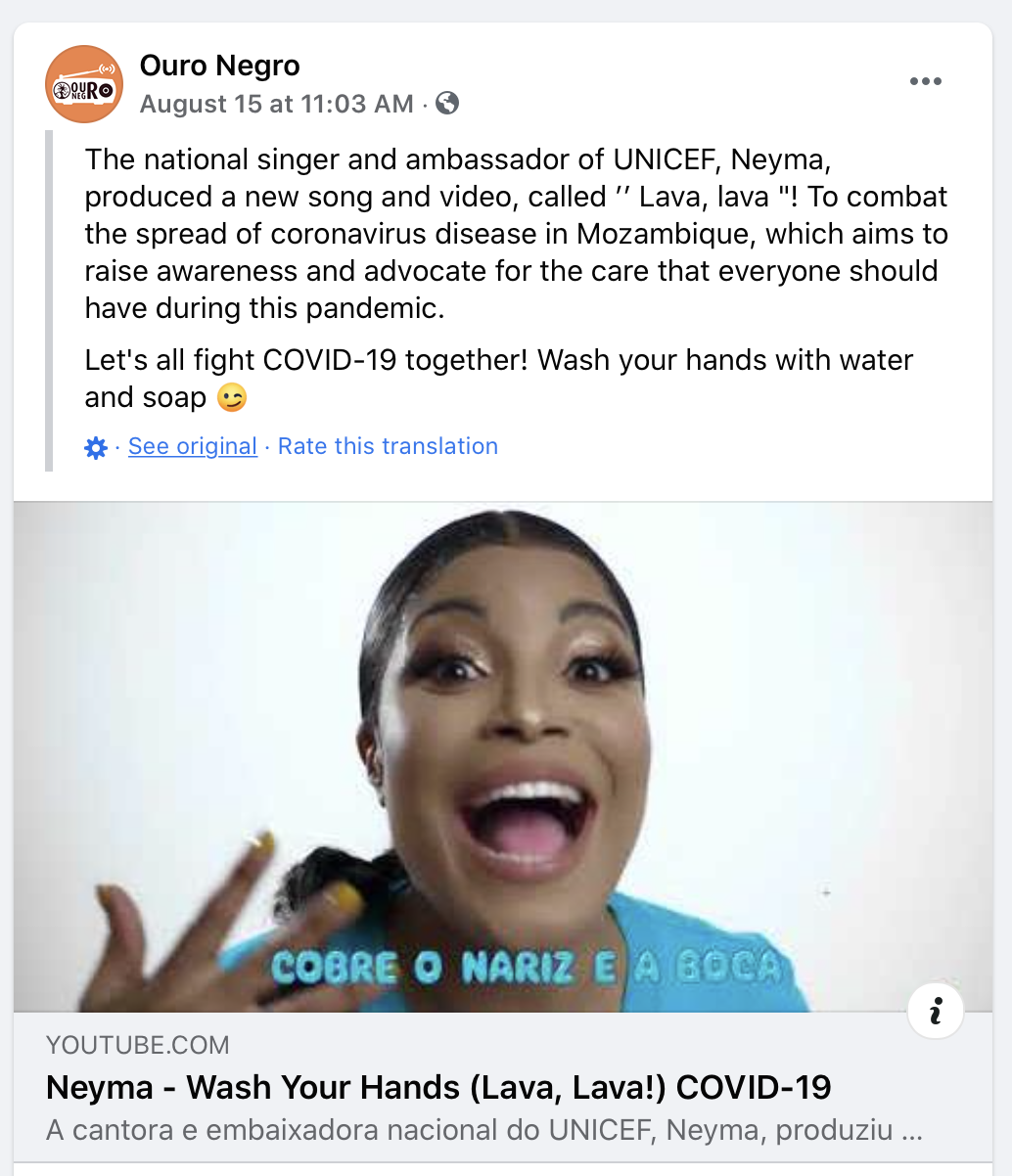Since 2015, PCI Media has partnered with UNICEF Mozambique and Radio Mozambique on a 360-degree communication initiative, Ouro Negro (Black Gold), to address a range of issues— including maternal and child health, sexual and reproductive health (SRH), gender-based violence (GBV), nutrition, gender equity, and others. At the heart of Ouro Negro is an Entertainment-Education (EE) Portuguese-language serial drama (accessible to low-literacy audiences) that reaches predominantly rural communities. The highly popular radio drama has over 2 million listeners.
Broadcasting Critical COVID-19 Messages through Ouro Negro
Because Ouro Negro has been a trusted source for public health information among its listeners, when the COVID-19 pandemic happened, we were able to use Ouro Negro to share essential prevention messaging to an already engaged base.
Since the outbreak of COVID-19, the live call-in programs have been transmitting messages on the pandemic including answering live questions on air from listeners and partnering with local health authorities. There are also numbers to text to get up-to-date health information.
“The radio drama changed my life… I receive important COVID-19 text messages thanks to the show and forward them to my friend and family. The messages help me, my family, and friends, learn preventative behaviors…” Said Lázaro B., 26 years old, Chimoio/Beira
We’re broadcasting a new Ouro Negro mini-series using existing characters from the original Education-Entertianment radio drama. The series contains messages and scripts approved by UNICEF and the Ministry of Health on social distancing, prevention, quarantine, and hygiene. In addition, the live call-in shows featured local health personnel who answered listeners’ questions and concerns on the air. Ouro Negro also used social media channels and Ministry of Health-approved posts on Facebook.

PCI Media was able to quickly implement these programmatic changes and disseminate information effectively for several reasons. To start, we have long-standing partnerships in Mozambique developed over many seasons, which enabled us to get scripts and messages rapidly approved. Also, the infrastructure of live call-in shows was already in place as part of the existing multimedia campaign and could easily be used to disseminate new critical information, particularly for audiences in hard-to-reach areas of the country. This allowed for two-way communication and authentic engagement with the audience that, as the situation evolved, ensured an avenue for a dialogue with audiences with a trusted and well-known program in the community.
The pandemic did create challenges in producing the radio mini-series while respecting the health and safety of the writers, producers, and actors. We accomplished this through social distancing, recording voices one by one, and disinfecting the studio between each actor. While this affected the timeline and had budget implications, we are grateful to our partners for their flexibility in reallocating funds to these new activities.


Recent Comments